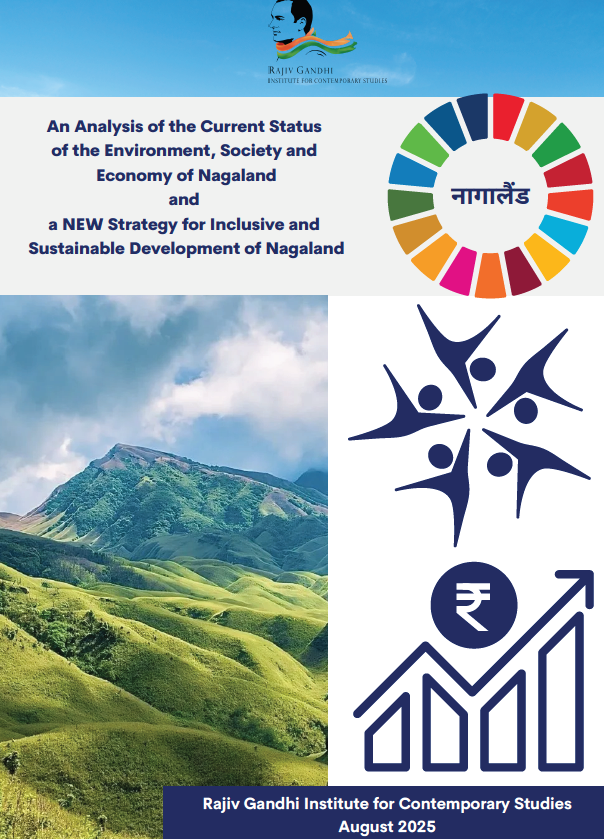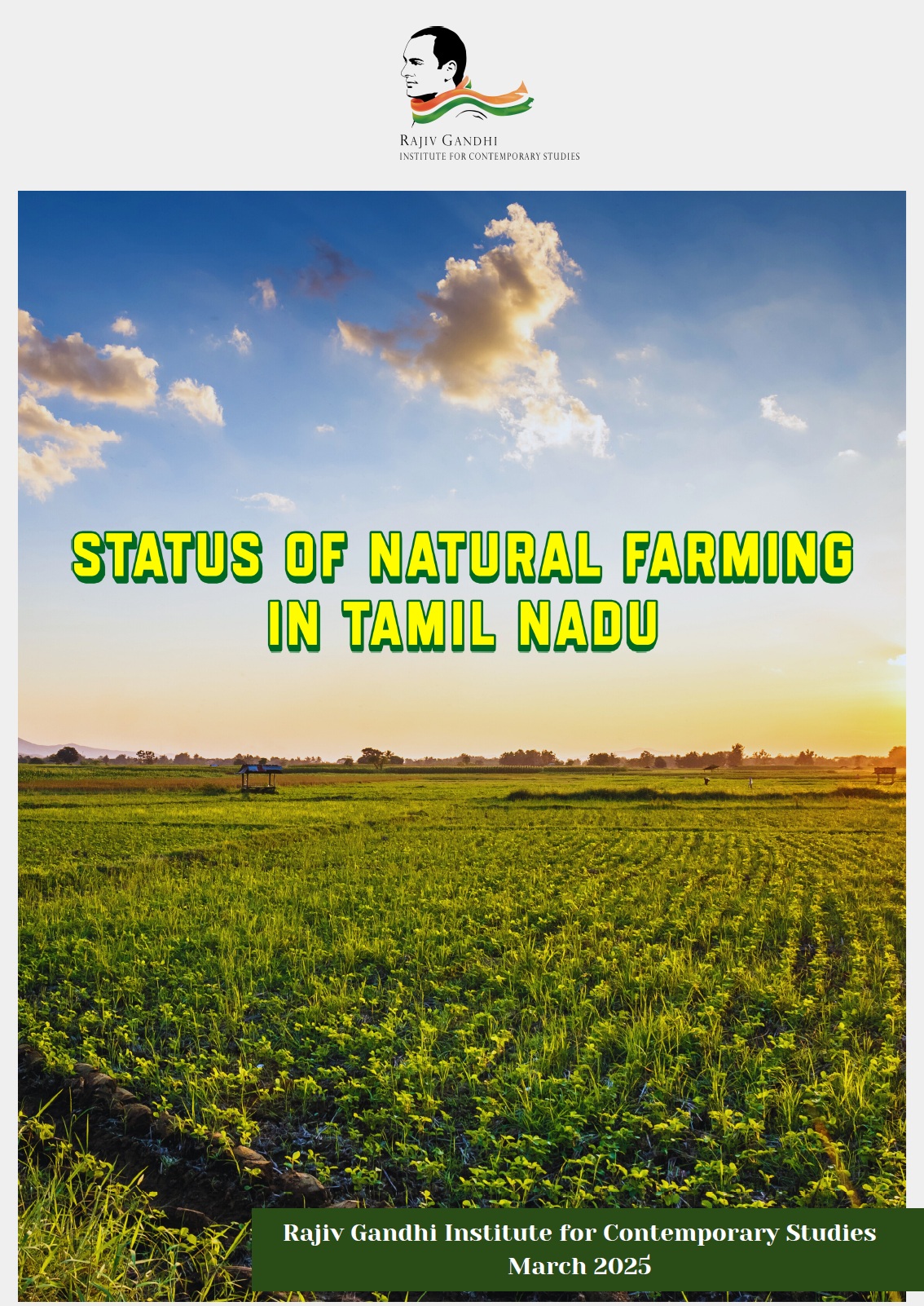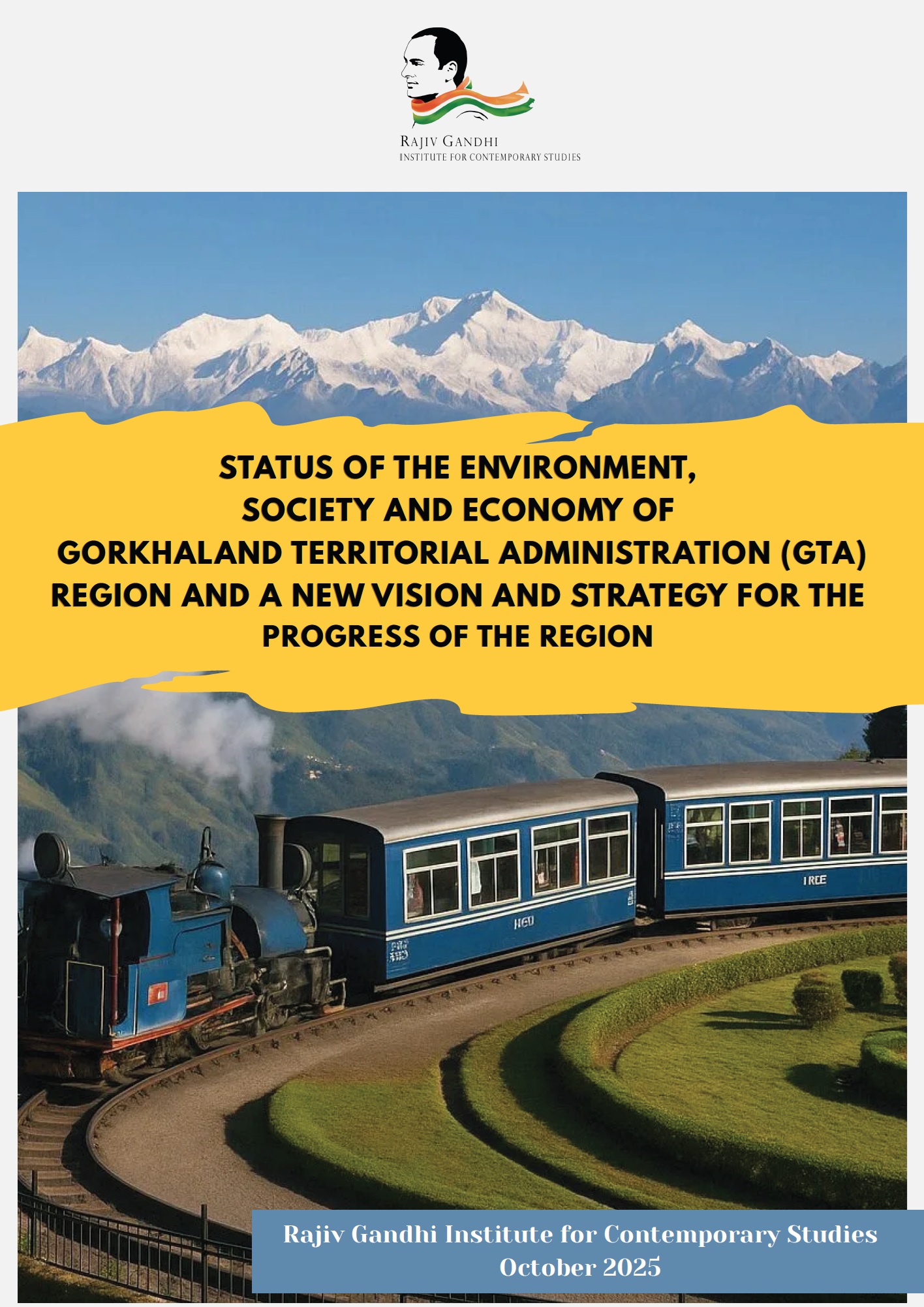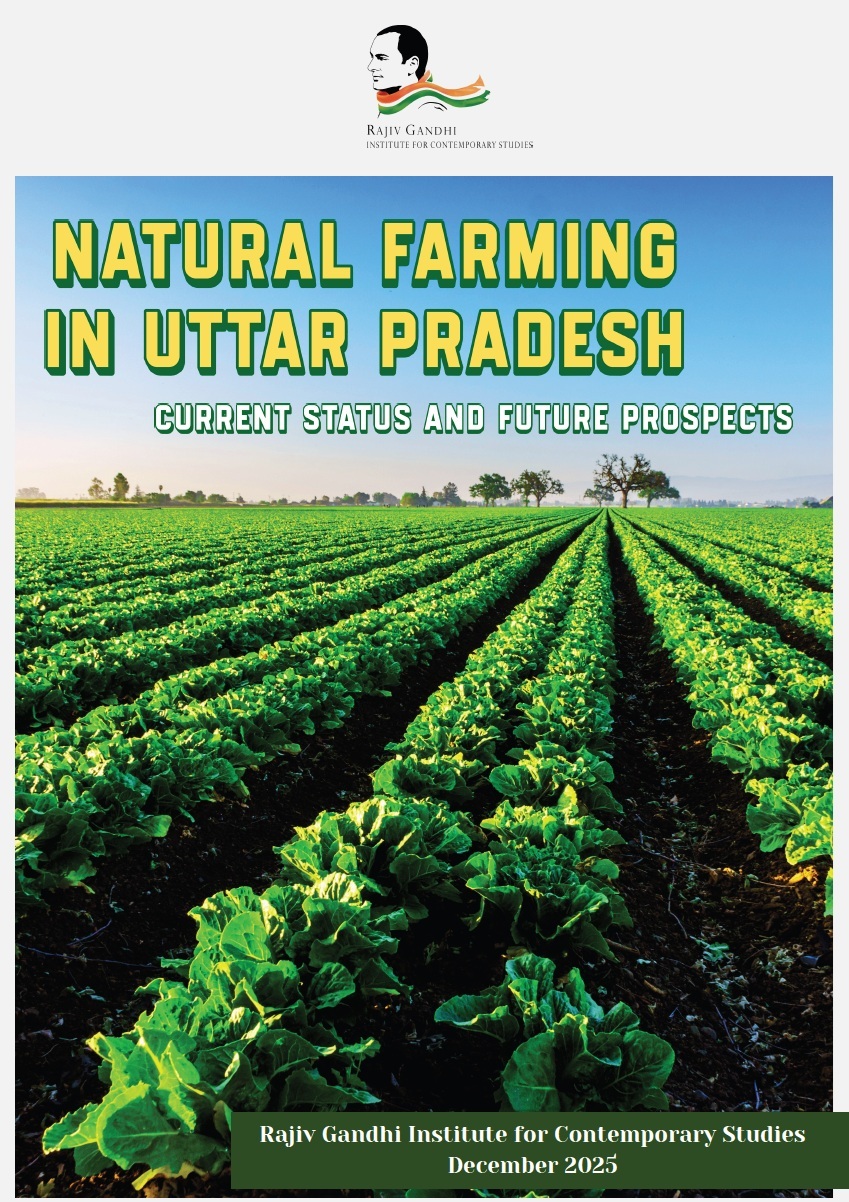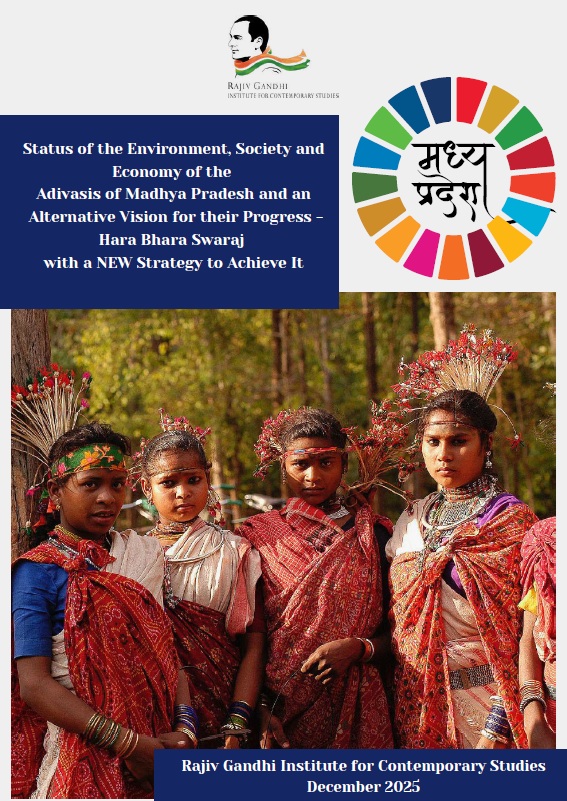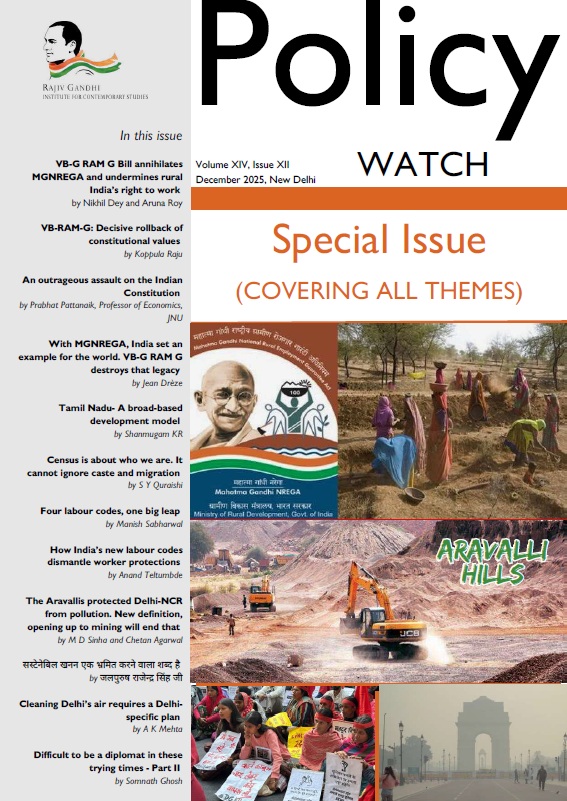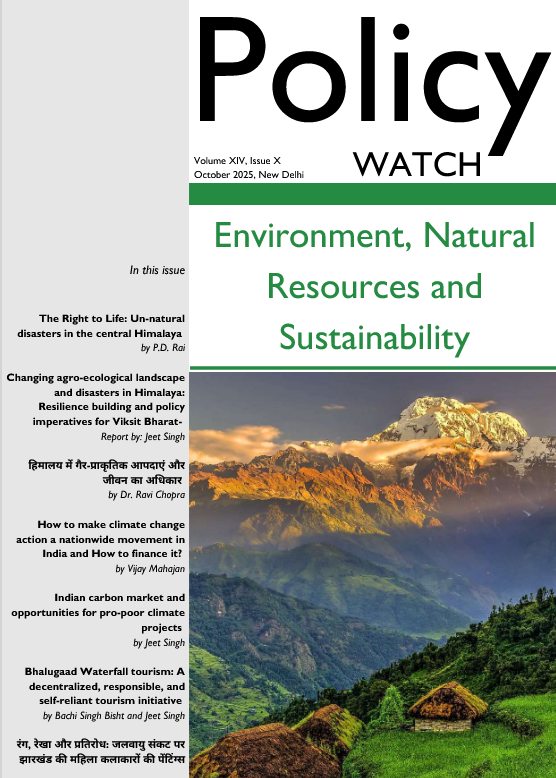The Nagaland SENSE Report presents an in-depth analysis of the state’s environment, society, and economy, while proposing the NEW Strategy—Nature Regeneration, Enabling Human, Social and Institutional Development, and Well-th Creation—as a path to sustainable development.
Nagaland, part of the Indo-Burma biodiversity hotspot, faces serious ecological challenges. Scarcity of water (Jal) due to drying springs, deforestation threatening forests (Jangal), and widespread land degradation (Jameen) affecting nearly half the geographical area all undermine livelihoods. The impacts of climate change (Jalvayu)—rising disasters, shifting crop patterns, and declining yields—further highlight the need for ecological restoration. Grassroots innovations such as Community Conserved Areas (CCAs) show how local stewardship can regenerate forests and biodiversity while supporting livelihoods.
The report stresses that social progress is equally vital. While Nagaland enjoys high life expectancy, gaps in healthcare infrastructure limit rural access, and rising substance abuse is a growing concern. The education and skills sector faces poor foundational learning, high dropout rates, and inadequate vocational opportunities. To address this, the report recommends REPAIR (remedial education), PREPARE (apprenticeships and re-skilling), and COMPERE (valorising indigenous knowledge and crafts), ensuring that traditional wisdom aligns with modern employability.
On the economic front, overdependence on government jobs and lack of industry have created high unemployment. The report proposes enterprise-driven solutions: entrepreneurship through DECI farms (Demand, Entrepreneurship, Capital, Inputs) for smallholders and MESO firms (Metro/Export demand, socially and environmentally responsible) for larger ventures. Together, they aim to transform agriculture, services, and manufacturing into resilient growth engines.
Overall, the SENSE Report calls for an integrated investment of over ₹50,000 crore across ecology, society, and economy. By regenerating water, forests, land, and climate, while empowering people with health, education, and enterprise, Nagaland can achieve balanced prosperity rooted in sustainability.
Key Words: Biodiversity,Water (Jal), Forests (Jangal), Land degradation (Jameen), Climate change (Jalvayu), Community Conserved Areas (CCAs), Healthcare,Education and Skills,Entrepreneurship (DECI & MESO), Sustainable Development (NEW Strategy), Nagaland.
An Analysis of the Current Status of the Environment, Society and Economy of Nagaland and a NEW Strategy for Inclusive and Sustainable Development of Nagaland
Send download link to:

